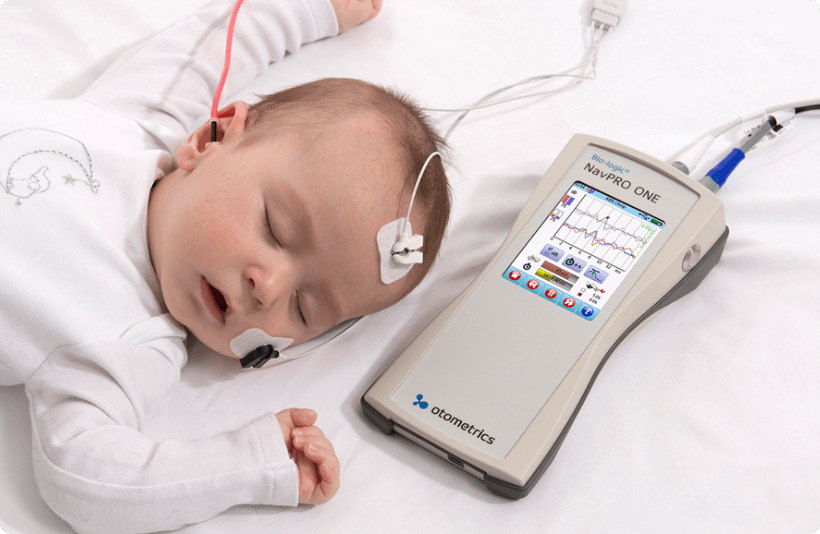
ASSR
ASSR
Auditory Steady-State Response (ASSR) is a crucial diagnostic tool used to evaluate hearing capabilities, particularly in individuals who may have difficulty with traditional hearing tests. This objective test measures the brain's electrical response to auditory stimuli, providing detailed information about hearing sensitivity across different frequencies. It is especially beneficial for diagnosing hearing problems in infants, young children, and individuals with developmental disabilities or other conditions that make conventional hearing tests challenging.

Advantages of ASSR
- Objectivity : Unlike behavioral tests, ASSR does not rely on the patient's response, making it ideal for those who cannot communicate their hearing experience effectively.
- Frequency-Specific Information : ASSR provides detailed information about hearing sensitivity at different frequencies, which is essential for fitting hearing aids and other auditory devices accurately.
- Early Diagnosis : ASSR can be used to diagnose hearing issues in newborns and infants, allowing for early intervention and better outcomes in language development and cognitive growth.
- Applicability : It is suitable for testing individuals with multiple disabilities, ensuring that all patients, regardless of their condition, receive appropriate hearing assessments.
Clinical Applications
- Pediatric Audiology : ASSR is invaluable in diagnosing congenital hearing loss, allowing audiologists to implement early treatment plans.
- Hearing Aid Fitting : The detailed frequency-specific information from ASSR helps in customizing hearing aids to the patient's specific needs.
- Assessment of Difficult Cases : For patients with non-organic hearing loss or those who cannot participate in behavioral tests, ASSR provides reliable hearing thresholds.
- Monitoring Hearing Loss : ASSR can be used to monitor progressive hearing loss in patients with conditions like ototoxicity or auditory neuropathy, ensuring timely adjustments in treatment.
